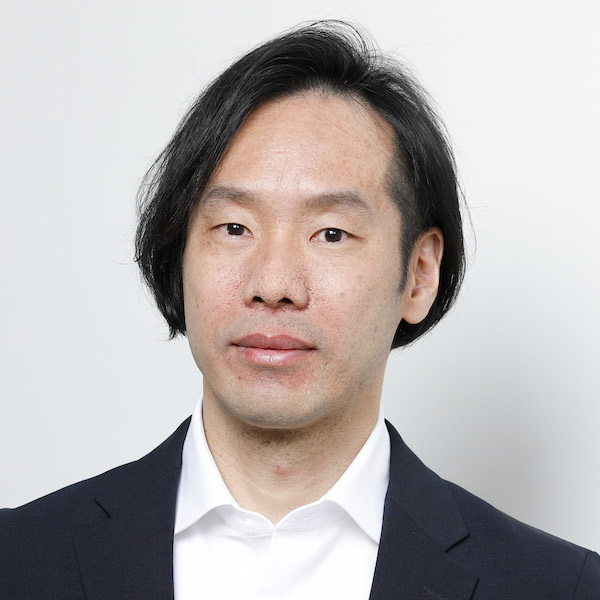Related Outline
The long-term goal in our lab is to understand how multicellular biological systems, which consist of a multi-hierarchical structure “genome-cell-tissue,” self-organize and establish order during embryonic development. Our bodies are composed of multiple organs with appropriate “shape” and “function”. During animal development, epithelial tissues, which consist of a single layer of cell sheets, repeatedly grow and deform to form an appropriate “shape”. The “function” of an organ depends on the property of cells, and cells appropriately differentiate and acquire functions to fulfill the physiological roles of their constituent organs. Thus, biochemical phenomena (gene expression and cell differentiation) and physical phenomena (morphogenesis) proceed simultaneously in the process of self-organization of multicellular organisms. For each organ to function correctly, both “physiological function” and “shape” must be in precise harmony. Using Drosophila embryogenesis as a model, my lab has previously revealed that, in addition to morphogenetic control under cell differentiation, the deformation of the epithelial tissue sheet affect the differentiation of cells, suggesting the existence of an autonomous ordering system based on mutual crosstalk between the biochemical phenomenon of cell differentiation and the physical phenomenon of tissue deformation. In addition, we have been establishing a single-cell transcriptome atlas of Drosophila embryos to observe genome hierarchy at the single-cell resolution in detail. By making full use of Drosophila genetics and imaging techniques in addition to single-cell genomics, we are working to elucidate the mechanisms of multi-hierarchical crosstalk on a genome-wide and whole-embryo scale.
Career
In graduate school, Takefumi worked on the identification and functional analysis of the micropeptides Pri of Drosophila in the group of Dr. Yuji Kageyama and received his Ph.D. from Nara Institute of Science and Technology in 2008. Then he moved to RIKEN Center for Developmental Biology as a postdoc in Dr. Shigeo Hayashi’s lab. He was appointed Assistant Professor (PI) at Kyoto University/K-CONNEX in December 2015 and promoted as Junior Associate Professor in 2022. He was appointed to his current position as Team Leader at RIKEN BDR in 2023.
Representative Achievements
- Spatiotemporal remodeling of extracellular matrix orients epithelial sheet folding
Alice Tsuboi, Koichi Fujimoto, Takefumi Kondo
Science Advances, Vol. 9(35), eadh2154 (2023)
DOI: 10.1126/sciadv.adh2154 - Single-cell transcriptome atlas of Drosophila gastrula 2.0
Shunta Sakaguchi, Sonoko Mizuno, Yasushi Okochi, Chiharu Tanegashima, Osamu Nishimura, Tadashi Uemura, Mitsutaka Kadota, Honda Naoki, Takefumi Kondo
Cell Reports, Vol. 42(7), 112707 (2023)
DOI: 10.1016/j.celrep.2023.112707 - Model-based prediction of spatial gene expression via generative linear mapping
Yasushi Okochi, Shunta Sakaguchi, Ken Nakae, Takefumi Kondo, Honda Naoki
Nature Communications, Vol. 12(1), 3731-3731 (2021)
DOI: https://doi.org/10.1038/s41467-021-24014-x - Two-step regulation of trachealess ensures tight coupling of cell fate with morphogenesis in the Drosophila trachea
Takefumi Kondo, Shigeo Hayashi
Elife, Vol. 8, e45145 (2019)
DOI: https://doi.org/10.7554/eLife.45145 - Mechanisms of cell height changes that mediate epithelial invagination
Takefumi Kondo and Shigeo Hayashi
Development Growth and Differentiation, Vol. 57(4), 313-23(2015)
DOI: https://doi.org/10.1111/dgd.12224 - Mitotic cell rounding accelerates epithelial invagination
Takefumi Kondo and Shigeo Hayashi
Nature, Vol. 494, 125-129 (2013)
DOI: https://doi.org/10.1038/nature11792 - Small Peptides Switch the Transcriptional Activity of Shavenbaby During Drosophila Embryogenesis
T. Kondo, S. Plaza, J. Zanet, E. Benrabah, P. Valenti, Y. Hashimoto, S. Kobayashi, F. Payre and Y. Kageyama
Science, Vol. 329, 336-339 (2010)
DOI: https://doi.org/10.1126/science.1188158 - Small peptide regulators of actin-based cell morphogenesis encoded by a polycistronic mRNA
Takefumi Kondo, Yoshiko Hashimoto, Kagayaki Kato, Sachi Inagaki, Shigeo Hayashi and Yuji Kageyama
Nature Cell Biology, Vol. 9, 660–665. (2007)
DOI: https://doi.org/10.1038/ncb1595

